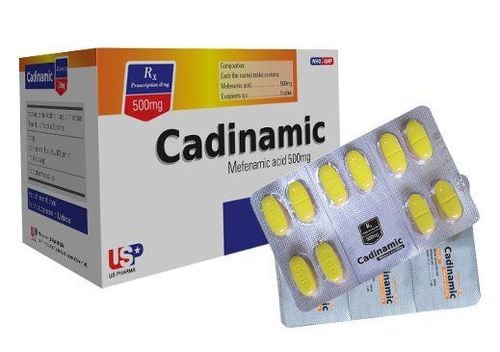This is an automatically translated article.
This article is expertly consulted by Master, Doctor Bui Ngoc Phuong Hoa - General Internal Medicine - Department of Medical Examination & Internal Medicine - Vinmec Danang International General Hospital.Pain due to neurologic disorders is often described as: burning or shooting pain. It may go away on its own but is often chronic, sometimes constant, very severe. The cause of pain in a neurological disorder is usually nerve damage or an abnormally functioning nervous system.
1. Cause
Neuropathic pain often has no obvious cause, but some common causes of neuropathic pain include:
Alcoholism Limb amputation (ghost limb) Chemotherapy Diabetes (peripheral neuropathy) Facial nerve problems HIV infection or AIDS Multiple sclerosis (MS: multiple sclerosis) Nerve or spinal cord compression caused by a herniated disc or arthritis in the spine Shingles Neuropathy Spine surgery Syphilis Thyroid problems .

2. Symptoms
Each person will have different symptoms of neuropathic pain, but common symptoms include:
Pain like a shooting, burning, or stabbing knife Tingling and numbness, or a feeling of being pinned Spontaneous pain with no known cause of pain Discomfort Difficulty sleeping or resting Emotional problems caused by chronic pain, insomnia, and difficulty describing how the pain is felt how painful.
3. Treatment
The first goal of neuropathic pain treatment is to identify the underlying cause or disease causing the pain and treat it. Then, your doctor will provide pain relief, help you maintain normal bodily functions, and improve your quality of life.
The most common treatments for neuropathic pain include:
Over-the-counter pain relievers Non-steroidal anti-inflammatory drugs (NSAIDs), such as Aleve (Naproxen) and Motrin (Ibuprofen), are sometimes used to treat neuropathic pain. neuropathic pain treatment. However, many people find these drugs ineffective for neuropathic pain. Unlike pain from trauma or headaches, neuropathic pain has no specific location for this medication to target.
Prescription pain relievers Opioid pain relievers may not relieve neuropathic pain in the same way as pain relief for other types of pain. In addition, doctors may hesitate to prescribe this drug for fear that patients may become dependent on the drug.
Topical analgesics can also be used as Capocaine patches, Capsaicin patches, ointments and creams.
Antidepressants Antidepressants have shown great potential in the treatment of neuropathic symptoms. Two types of antidepressants commonly prescribed for people with neuropathic pain, tricyclic antidepressants and selective serotonin reuptake inhibitors (SSRIs), are used to treat both pain and depressive symptoms. or anxiety caused by chronic pain.
Anticonvulsants Antiepileptic drugs and anticonvulsants are sometimes used to treat neuropathic pain. Gabapentinoids are most commonly prescribed for neuropathic pain, but doctors still don't fully understand why antiepileptic drugs are effective in neuropathic pain, but researchers believe it's because these drugs interfere on pain signals and prevent faulty nerve signal transmission.

Regional Anesthesia The doctor may inject steroids, local anesthetics, or other pain relievers into the nerve that is thought to be causing the patient's pain signals. However, the area numbing is only temporary, so the pain will keep coming back when the medicine wears off.
Implantable device The surgeon will implant a device in the brain or spine that sends electrical impulses to the brain, spinal cord or nerves. These electrical impulses can block abnormal nerve signals and control pain symptoms. These devices are usually only used in people who have not responded well to other treatment options.
Lifestyle treatments Physiotherapy, relaxation, and massage are all used to relieve nerve pain symptoms. These treatments can help relax muscles and relieve nerve problems.
Multimodal analgesia There is no single standard treatment for neuropathic pain that works for all patients, so a combination of different treatments can be an effective way to manage the condition this. For example, a combination of medication, physical therapy, psychotherapy, and even surgery or implants can be used to provide the best results.
Please dial HOTLINE for more information or register for an appointment HERE. Download MyVinmec app to make appointments faster and to manage your bookings easily.
Articles refer to sources: Who.int, Webmd.com, Heathline.com














